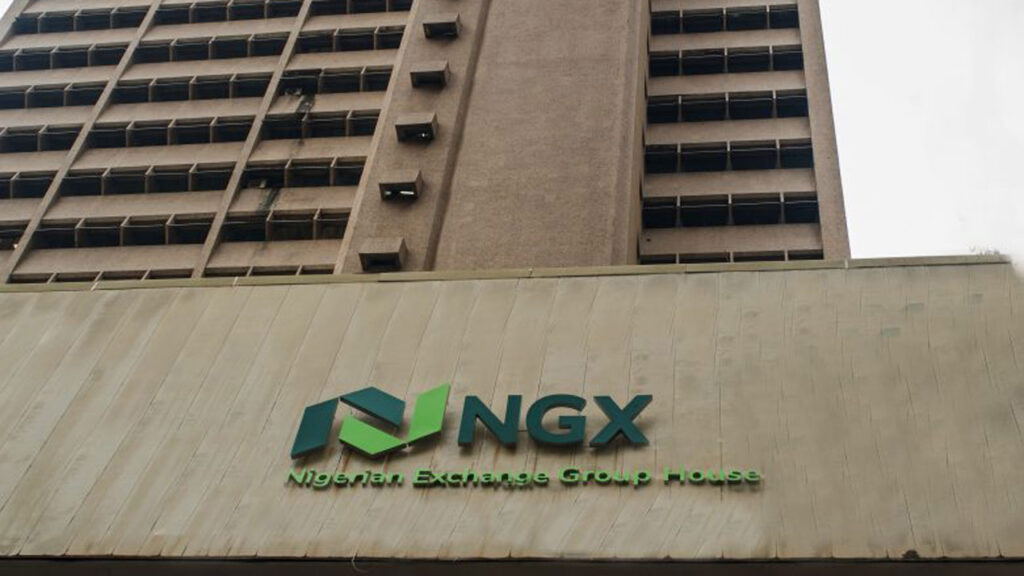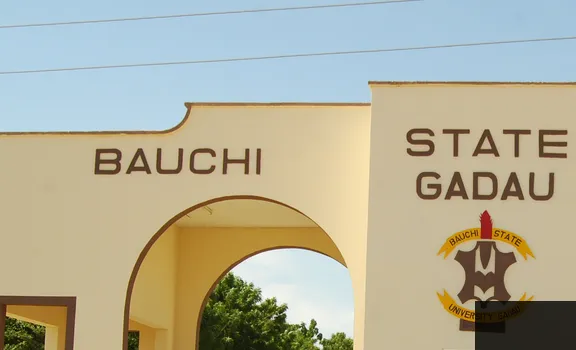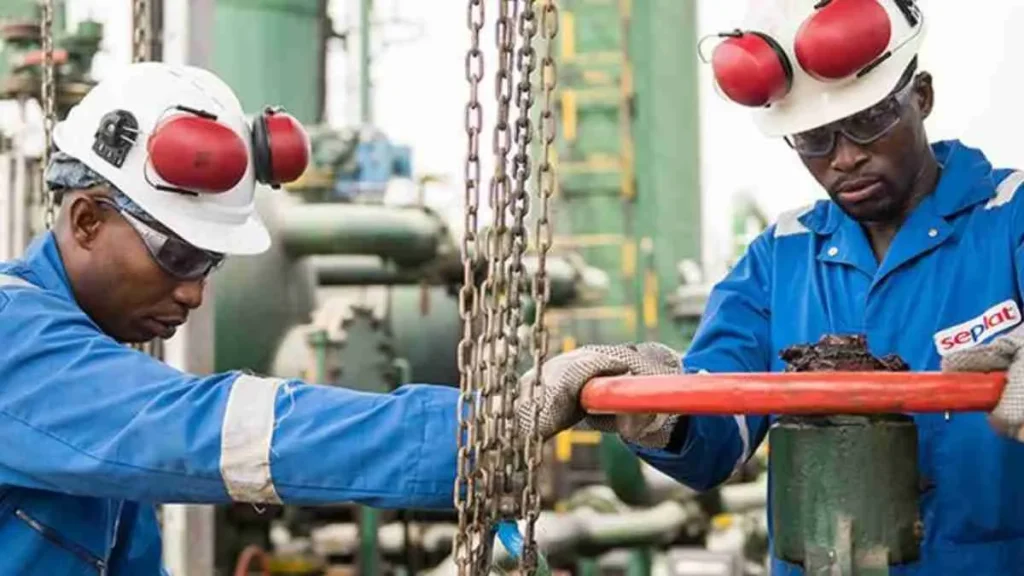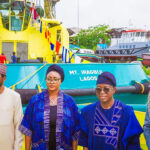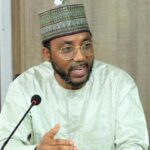
The deplorable state of ports infrastructure has cost Nigeria heavily. Stakeholders, at a recent breakfast meeting, called for urgent solutions to address the problem to make the country the maritime hub in West and Central Africa, writes ADAKU ONYENUCHEYA.
If Nigeria will be competitive in maritime business and attain hub port status in the West and Central African sub-region, it must develop port infrastructure that meets global best standards.
The Federal Government will also be unable to realise the revenue potential of the sector if deteriorating port infrastructure leads to dwindling ship calls and cargo traffic.
These were the submissions of stakeholders at a breakfast meeting organised by the Maritime Reporters Association of Nigeria (MARAN) in Lagos, with the theme, “Deplorable State of Infrastructure at Tin Can Island Port (TCIP)”.
The deteriorating infrastructure has affected the entire port community, including the terminal operators, regulatory agencies, government revenue generation drive, trade facilitation and other port users.
Former President of the National Association of Government Approved Freight Forwarders (NAGAFF), Dr. Eugene Nweke, said the current state of the nation’s ports should necessitate an urgent declaration of a state of emergency with collapsed quay aprons and other flaws at the seaports.
Nweke, who is the Head of Research at the Sea Empowerment Research Centre, said ports are vital components in the shipping business and act as physical interchange or middle grounds for the trading community.
He said to utilise the proper ship accommodation, balance floating at anchor and ease the flow of water traffic, a port requires the availability of docks, floats, piers, gangways and other conveniences or support facilities, thereby facilitating the turn-around time of the vessel.
Nweke said ports must be run and controlled as efficient organisations, adding that inefficiencies of the ports will result in costly delays for ship owners who cannot afford it, especially, when the daily costs of running a big container ship are so high.
“We are in an era of mega carriers which entails that a port is equipped with the most modern cargo handling facilities to keep productivity at an optimum level,” he said.
Nweke noted that the indicators and requirements for efficient ports include, well organised container yards for both storage and handling of containers as well as an accurate ship planning department to ensure proper stowage.
Others, he said, include immediate availability of freshwater and bunker supplies for vessels alongside (at berth), high and computerised system to control the smooth delivery of cargo to and from the port to avoid any congestion and delays, good railroad/barge network to facilitate delivery and efficient Customs clearance system.
He continued: “A good highly trained and qualified workforce working 24/7, foresight and planning to ensure there are always enough berths available to handle larger and faster containers ships, a computer system that allows the automation of routine operations in the ports that can be handled by a remote control device and making the ports as customers-oriented as possible, as well as having a user-friendly tariff system.”
Also speaking, a former Director General of the Nigerian Maritime Administration and Safety Agency (NIMASA), Mr. Temisan Omatseye, linked the problem of deteriorating port infrastructure to overdependence on Lagos ports, while ports in other states are grossly underutilised.
Omatseye observed that the same problems plaguing the Lagos ports are now being transferred to the new deep sea port at Lekki, noting that failure to use other modes of cargo evacuation other than road transportation will spell doom for the Lekki port.
He claimed that as a result of this neglect of other modes of cargo evacuation from the port, the clearing process is slow, cumbersome and expensive, adding that this has made some importers and vessels divert their cargo to the neighboring countries.
“NPA, Customs and other agencies of government are losing money. If I have my way, I will close down the port gates to road transport. I will not allow any terminal to do road transport for the evacuation of cargo to encourage the use of water transportation. The same process should apply to the Lekki deep sea port,” Omatseye stated.
Omatseye also called for the development of river ports to disseminate cargoes via inland waterways, adding that the challenge of security along the Eastern ports is being exaggerated.
On his part, the Executive Secretary/Chief Executive Officer, the Nigerian Shippers’ Council (NSC), Emmanuel Jime, said until the focus was shifted to the development of port infrastructure to international standards, it would be difficult to achieve competitiveness and the objective of becoming the maritime hub in the West Africa sub-region.
The NSC boss also noted that the current mode of cargo evacuation in the country focuses primarily on the road network, noting that this was not the sustainable way of delivering port services in other parts of the world.
He said the inland waterways and rail linkages are significant parts of ports operation that should come together for the nation to achieve the ultimate objective of ranking as a premium and proper maritime nation.
Jime added that Nigeria also needed to strengthen its weak regulatory framework at the ports to make the country’s ports more attractive to global trade.
Speaking earlier, the President of MARAN, Godfrey Bivbere, said the effect of the failed ports infrastructure on the maritime industry’s overall dynamics, especially port operations, is enormous.
He said the entire port community is affected one way or the other, beginning with the terminal operators who have to worry about the production gap with the Nigerian Ports Authority (NPA), which will most likely not collect its projected dues.
Bivbere said the Nigeria Customs Service (NCS) is also affected as it can only collect duties and associated taxes on imported goods on the reduced number of cargo ships that berth, with a cumulative negative on projections.
He said the bureaucratic bottlenecks have made it difficult for capital projects in the industry to be executed, especially as the capital expenditure must have to pass through procurement processes, which takes a lot of time.
The MARAN president urged the Federal Government to exempt the maintenance or replacement of critical facilities from the Civil Service procurement processes.
He also lamented the involvement of politicians in almost all financial expenditures, which makes it often difficult for things to get done correctly by all government agencies in the industry.
“The issue of pilotage service boats. For the Lagos pilotage district, there would not be a major problem should a tug boat become faulty or require replacement because Apapa and Tin-can ports are very close, therefore the tug boats could be easily deployed from any of the two ports in the shortest possible time.
“The ports in Warri, Calabar and Port Harcourt do not have the same advantage. In a situation where the ports have just two tug boats, one is undergoing repairs and the other suddenly breaks down, NPA will be forced to go renting and that is where the politicians come in. Someone from Abuja will come in to provide that service for an uncertain period, while the process drags at the procurement,” he explained.
He called for a workable solution to the tragedy of the failed quay apron at Tin-can Port as well as other similar challenges confronting port operations in the country.
On his part, the President General of the Maritime Workers Union of Nigeria (MWUN), Adewale Adeyanju, stressed that appointing inexperienced personalities as chief executives to head regulatory agencies easily leads to misguided decisions that stagnate the nation’s maritime industry.
He attributed the collapsing quay aprons at Tin Can and dilapidated access roads leading to Onne and Calabar ports as issues that would have been tackled headlong if technocrats were appointed to lead port regulatory agencies.
Adeyanju, who also doubles as the Deputy National President of the Nigeria Labour Congress (NLC), observed that the regulatory agencies in the maritime industry have been deprived of quality leadership in recent years.
Meanwhile, the Nigeria Ports Authority revealed that the pressure on ports caused the infrastructural decay.
The Managing Director, NPA, Mohammed Bello-Koko, said Tin-Can Island Port and Lagos Port Complex, which have been in existence since 1977, handle between 60 and 65 per cent of cargoes coming into the country, a situation he said may have contributed to the strain in the ports infrastructure.
Bello-Koko, who was represented by General Manager, MD’s office, Mr. Ayo Durowaye, said the reconstruction of the Tin-Can Island quay wall was top on the agenda of the infrastructural renewal of the NPA, which covers all ports across the country.
The NPA helmsman disclosed that the management has explored and identified sustainable Public Private Partnership (PPP) funding options, which have been forwarded to the government for necessary approvals to address the menace of infrastructural decay within the ports in the country.
He, however, noted that though there were infrastructural challenges in the environment, it had not come to the level where vessels were avoiding the Tin Can Island facilities.
Bello-Koko noted that recently, PTML terminal, which is also at TinCan Island berthed the largest RoRo Vessel to call to Nigeria while informing that the current management of NPA has painstakingly made efforts to find different options in the face of difficulties in sourcing the huge funds needed to uplift the facilities.
He, however, regretted the decades of neglect of the facilities, which according to him, the cost implication for fixing port infrastructure deficit now outweighs the Authority’s budgetary provision, hence, it has to explore other sources of funding for the rehabilitation projects.


